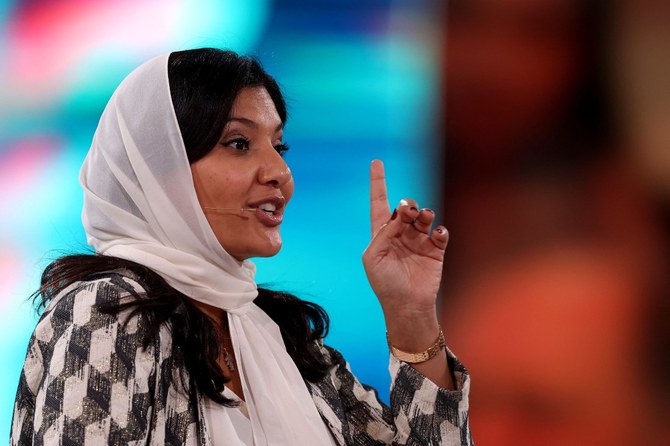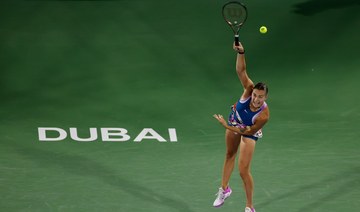RIYADH: Princess Reema bint Bandar, Saudi Arabia’s ambassador to the US, has rejected calls by tennis legends Chris Evert and Martina Navratilova for a ban on holding the Women’s Tennis Association Finals in Saudi Arabia.
Princess Reema’s comments in a statement on Monday come in the wake of an opinion piece written by Evert and Navratilova that was published in the Washington Post on Jan. 26. The two argue that the Kingdom does not have gender equity and should not be awarded the season-ending event.
Princess Reema wrote: “Sports should not be exploited as a tool to promote personal bias, agendas, or to penalize a society eager to embrace tennis and contribute to its growth.”
She added: “Failing to acknowledge the great progress women have made in Saudi Arabia denigrates our remarkable journey.”
“Like many women around the world, we looked to the legends of tennis as trailblazers and role models … glimmers of hope that women truly could achieve it all. But these champions have turned their back on the very same women they have inspired and it is beyond disappointing,” she said.
Women in Saudi Arabia now have opportunities in traditionally male-dominated sectors, such as the military, firefighting, law enforcement, and even space exploration, said Princess Reema.
She rejected the argument by Evert and Navratilova that women are not equal in Saudi Arabia society. “On this, let me simply say: get your facts straight. What is often referred to as ‘guardianship’ no longer describes the status of Saudi women today. Women do not need the approval of a guardian to travel, work, or be the head of their household.”
She added: Today, Saudi women own more than 300,000 businesses and roughly 25 percent of small and mid-sized start-up companies, which is about the same percentage as the United States. Women in Saudi now enjoy equal pay, leading the way towards something that should be universal.”
Princess Reema further said: “While there’s still work to be done, the recent progress for women, the engagement of women in the workplace, and the social and cultural opportunities being created for women are truly profound and should not be overlooked.”
Princess Reema said the Kingdom has over 330,000 registered female athletes, with 14,000 actively participating in tennis. Thousands of women serve as coaches, mentors, referees, and sports doctors in various capacities.
Princess Reema emphasized that portraying Saudi Arabia’s women as voiceless victims not only undermines their progress in sports but also detracts from the broader advancements made by women in the country.
The ambassador dismissed assertions that guardianship laws in the Kingdom restricted women’s freedom, adding that these rules were no longer in force.
She dissmissed claims that Saudi law considered women as property, urging the need for accurate information.
Highlighting the achievements of athletes such as Yasmeen AlDabbagh, Tahani AlQahtani, and Yara AlHogbani, the ambassador emphasized their contributions in challenging perceptions about women’s rights in Saudi Arabia.
Princess Reema called for a healthy debate on women’s progress and urged inclusive dialogue to avoid bias.
She expressed a willingness to welcome diverse perspectives and underscored the importance of fostering productive dialogue for the common cause of advancing women’s opportunities globally.




























